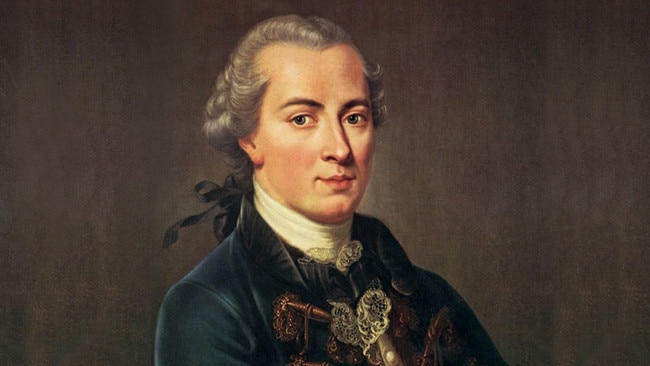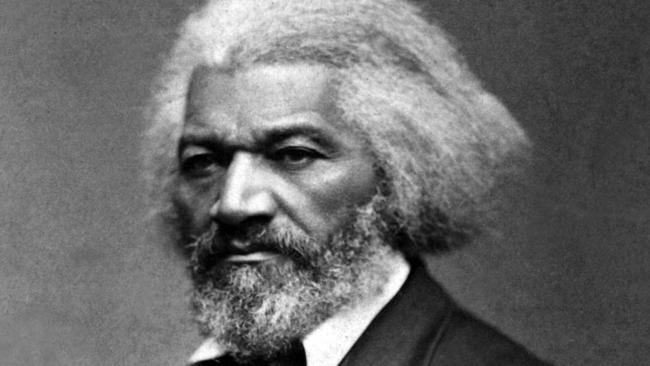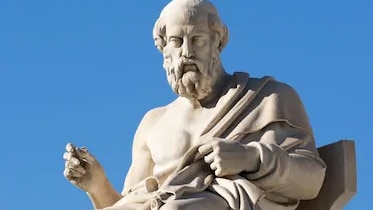

One of the ironies of the modern movement to colonise the curriculum with race politics is that historical leaders of black liberation were influenced for the better by Western canonical works. W.E.B. DuBois was an early 20th-century civil rights leader whose book, The Souls of Black Folk, became a classic of sociology and race politics. It is the kind of book worth reading because of DuBois’ talent for the artful use of allusion, metaphor and cadence, which is occasional, but delights the senses no less.
On politics, DuBois’ theory that the problem of the 20th century would be race is hackneyed. In moments where he lifted himself above crude politics and laboured anecdotes to the realm of great literature, his prose seared: “I sit with Shakespeare and he winces not … From out of the caves of evening that swing between the strong-limbed Earth and the tracery of stars, I summon Aristotle and Aurelius … So, wed with Truth, I dwell above the veil. Is this the life you grudge us, O knightly America? Is this the life you long to change into the dull red hideousness of Georgia?”

For centuries, slave masters kept Africans in chains of metal and of the mind. The enslaved were not allowed to commune with genius lest it set their minds free and their bodies soon followed. Abolitionist leader Frederick Douglass escaped from slavery after he was offered the forbidden fruit of literacy by the rebel wife of a slaveholder. After he discovered his wife was teaching young Frederick to read, the slaveholder forbade it. The boy went on to teach other people in slavery the New Testament. After he was a free man, he produced abolitionist literature including The North Star newspaper, whose motto read: “Right is of no sex – Truth is of no color — God is the Father of us all, as we are all brethren.” Through the publication, Douglass aimed to promote the “intellectual improvement of the colored people”.
One of the most influential intellectuals of modern race politics is Edward Said. His 1978 book, Orientalism, provides the most comprehensive rationale for postcolonialist studies. He earned a doctoral degree from Harvard University in English literature. Said argued Western civilisation was a project of intellectual as well as territorial colonisation. The evidence he cites is drawn from his expertise as a critic of Western literature. A basic argument is that when viewed through Western eyes, the truth about Eastern cultures is partial. The true representation cannot come from a foreigner, only a member of the ethnic group.

I first came across the feminist version of this argument, which was known as standpoint theory. Feminists argued that only a woman could speak truthfully about the reality of living as a woman or represent the female voice in literature. I broke with the theory on the day a feminist lecturer instructed us to “write from the c …”. It struck me that when women had fought for centuries to be regarded as human before female and valued for their minds, any academic that reduced a class of young women to their genitals was no friend of our cause.
The biological reductionism that underlies modern identity politics is anti-liberation. Just as women are reduced to their biology by feminists of a certain ilk so, too, are black people reduced to their skin colour by many modern race activists.
The call to decolonise the curriculum is part of the problem. Rather than arguing for the intellectual value of great works by people from varying ethnic backgrounds, postcolonialists begin with the premise that skin colour matters most. What could have been a fascinating public debate about broadening the canon has become a movement to destroy it. The violent puritanism at the heart of the movement to decolonise the curriculum reveals its foundation in a destructive ethos where the act of creation that brings a canon into being is forsaken.
The objective of those who want to decolonise the curriculum is to recolonise it with politically correct works. The politicised curriculum might feature some excellent writers, but people of all cultures venerate the works of a writer such as Shakespeare because his understanding of the human condition is so complete and his writing so fine. If there is a black Shakespeare, show us his or her work because, sadly, the West has not produced another one and we are hungry for more. The greater our exposure to genius, the better.
The demand to decolonise the curriculum seems to be a permanent feature of post-intellectual life. On campus, political activists are rejecting works of genius because they believe banning books by people with pale skin is an act of race equality. And a reasonable argument for teaching the Western canon might be the quality of literature produced by racially oppressed people who had early exposure to its works.








“You must decolonise the curriculum.” You could be forgiven for thinking the idea is passing strange. It is premised on the absurd idea that the geniuses of Western civilisation — Plato, Shakespeare, Kant — are mere squatters in the house of learning rather than the men who built it. The activists demanding the erasure of the Western canon on campus must be made to face reality; they are the colonisers. And they are demonstrably incapable of creating a superior intellectual culture to the one that existed before their arrival.